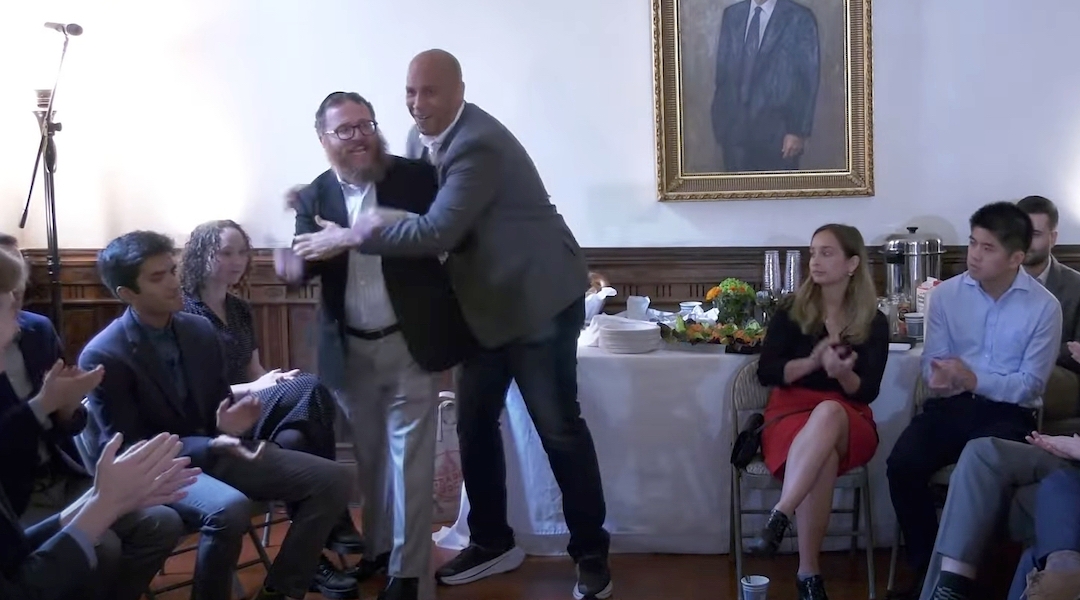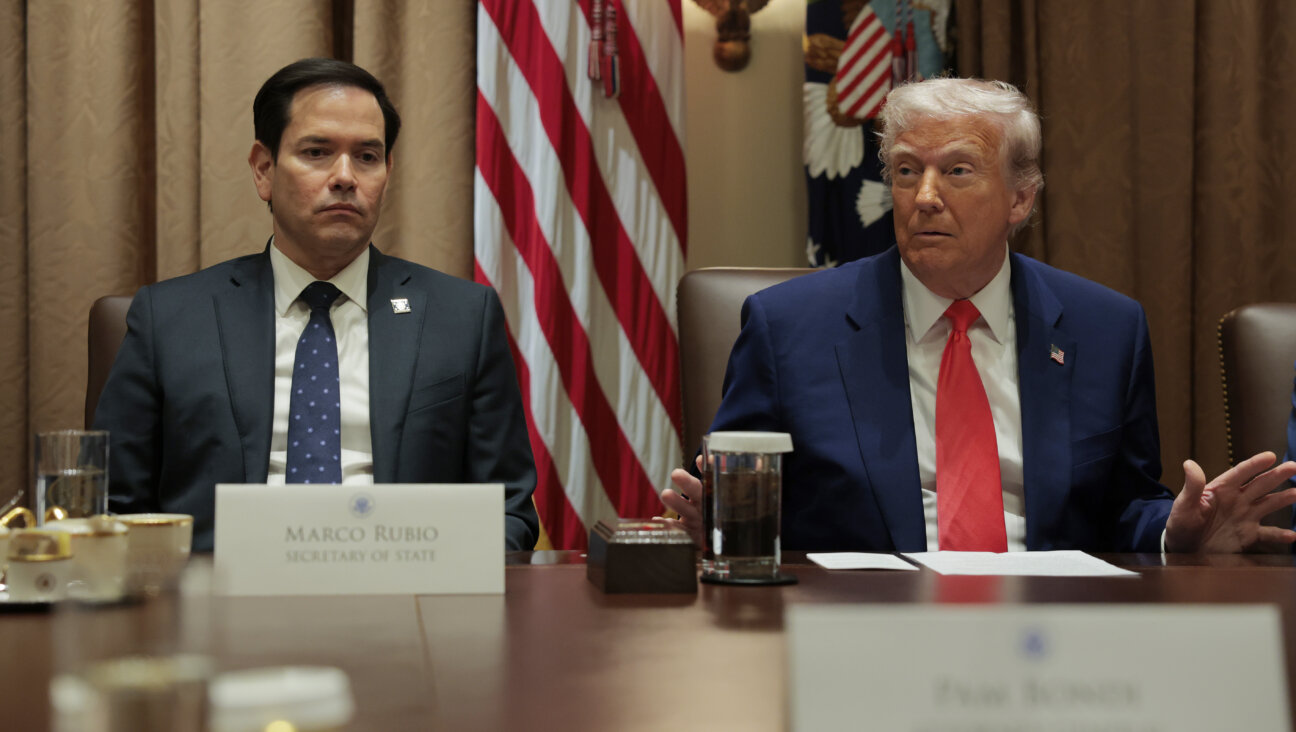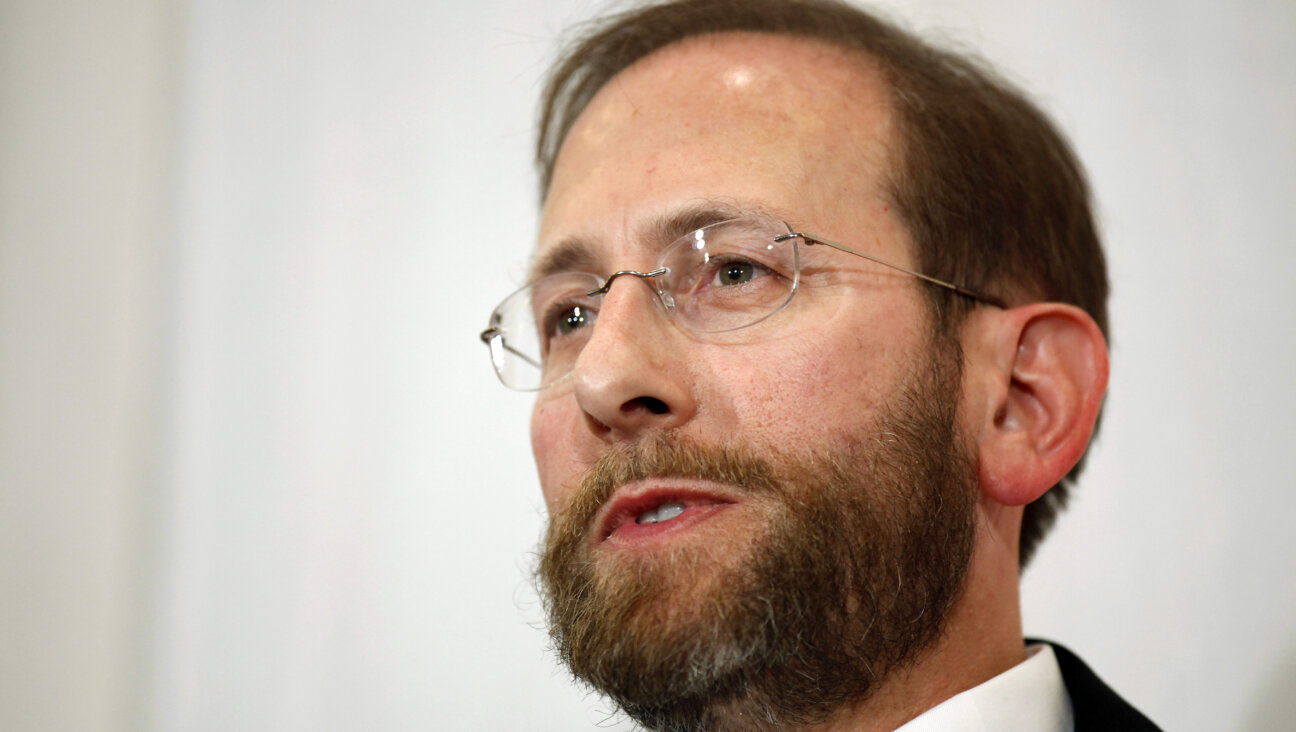Top Baltimore Fundraiser Taking a Job at the ‘Joint’
Darrell Friedman, one of the most respected professionals in the federated Jewish philanthropic system, is resigning as president of the Associated: Jewish Community Federation of Baltimore and joining the staff of the American Jewish Joint Distribution Committee.
Friedman is one of four former executives from local federations across the country who in the last four years joined one of the two international relief bodies that rely on federations for their primary funding. The other three went to the Jewish Agency for Israel.
Some observers see the departures as a trend that reflects the failure of the federations’ recently formed national coordinating body, United Jewish Communities, to play its assigned role as an advocate at the local federation level for the needs of its international clients, the JDC and Jewish Agency. Prior to UJC’s creation in 2000, the needs of overseas clients were presented to federation budgeters, with legendary forcefulness, by the national United Jewish Appeal.
Apparently responding to complaints of weak UJC advocacy, the national body announced the creation this month of a new committee to advocate for unmet needs abroad.
“The advocacy committee will alleviate some of the pressure on JAFI and JDC to think all of us have to be in the communities making our case,” said Karen Shapira, outgoing chair of the Israel and Overseas Pillar, a UJC subdivision under which the advocacy committee will be established. “We could do it in the most concerted way possible.”
The committee does not represent an entirely new effort, Shapira claimed. But it will mean an advocacy initiative “slightly more formalized and slightly more planned” than before.
While many UJC and local federation leaders are commending the decision, others compare the convening of a committee within UJC’s overseas pillar to putting a Band-Aid on a gunshot wound.
“The emergence of UJC dismantled the whole Israel advocacy apparatus,” said Rabbi Daniel Allen, executive vice president of the Jewish Federation of Greater Hartford. “To have it reemerge as a committee of a pillar does no justice to the cause.”
Allen is a former executive vice chairman of the United Israel Appeal, a small body that, along with the larger UJA and the Council of Jewish Federations, was folded into the UJC in the 2000 merger that created the new body. The UIA, as the formal American agent for the Jerusalem-based Jewish Agency, continues to exist in diminished form within UJC.
UJC serves as a central coordinating and service body for some 160 local federations of Jewish charities, which together fund and operate a multibillion-dollar network of social service and cultural agencies in North America and around the world.
One of the goals of the merger, local federation activists say, was to replace the old UJA system of budgeting from the top for overseas needs, which was widely disliked by local community leaders. In its place UJC created the Overseas Needs and Distribution Committee, known as ONAD, through which the federations themselves determine how funds are to be spent abroad. Giving local federations a greater “ownership” or control of the allocation process was meant to induce greater responsibility and thus stem the decline in donations overseas.
UJC officials claim the new system has stopped the bleeding. But others within UJC point to a $24 million shortfall in federation funding for overseas needs during the last two years as a sign that UJC has not lobbied effectively for its international clients.
“Many of us have been urging UJC to form this [advocacy] task force,” said UJC’s financial relations chairman, Richard Wexler. “I don’t think we can wait any longer when allocations to Jewish Agency and JDC continue to reduce at a time when needs are great.”
Wexler also serves as chairman of the North American Council of the Jewish Agency for Israel, a new group that advocates for the Jewish Agency’s needs to UJC and the federations.
Noting the departure of Friedman and other federation executives to join the staffs of international beneficiary agencies, Wexler said that if UJC was doing its job, “then I’m assuming neither the Jewish Agency nor JDC would have to be hiring significant numbers of very well-schooled and well-skilled federation professional leaders to do that work.”
“I’m disappointed that both the Jewish Agency and JDC have been cast into a competitive environment between each other,” he said.
These appointments, said Jeffrey Levin, executive director of the Jewish Federation of Washtenaw County in Michigan, “are a reflection that the Jewish Agency and JDC feel the need to be out there gunning for themselves.”
But Steven Schwager, executive vice president of the JDC, said the increased lobbying by foreign agencies is not due to a lack of UJC advocacy as much as a function of the new system that gives federations more control over giving. Under the ONAD process, 10% of overseas funds can be designated at the discretion of each federation.
Schwager acknowledged, however, that Feldman’s extensive tenure at the Baltimore federation would serve the JDC in its efforts to attract these local dollars.
“We wanted to continue to improve our relationship with the federated system,” Schwager said. Friedman “will help us to bring JDC closer to the federation system… It means we have a closer relationship with federations to deal with the new rules of the game.”
Friedman, whose name was said to have been floated as a possible candidate for the top professional post at UJC before Stephen Hoffman’s appointment, said he would begin his part-time work as a “special consultant” to JDC in New York in August. Friedman said he took the job after retiring from a 16-year stint in Baltimore because he wants to be close to his grandchildren in New York while working directly with a vibrant organization. Friedman said he also hopes to help JDC “understand local federation processes.”
The three former top federation executives who joined the Jewish Agency since UJC’s formation are David Sarnat of the Atlanta federation, currently executive vice president of the agency’s North American section; Ted Farber of the Washington, D.C., federation, now a consultant to the agency, and Marshall Jacobson of the Louisville and Cleveland federations and UJC, presently associative executive vice president/community liaison of the agency.
Shapira defended UJC’s overseas pillar against criticism that it had not made a compelling case to federations about needs abroad. “I believe that advocacy in the fullest sense is engagement” by federations, Shapira said. “We’ve been doing quite a decent job of it…. We have seemingly stabilized overseas allocations.”
Although Shapira is the outgoing chair of the Israel and Overseas pillar, which has yet to replace her or its vice chair who left several months ago, Shapira listed some proposals for the new advocacy committee: An association of chairmen of overseas and budget committees from federations around North America; a formal list of speakers culled at UJC of credible federation lay leaders, and beneficiaries of welfare funding abroad.
“One thing we should be doing is asking the community what they need from us,” Shapira said.
The chairman of ONAD, Steven Klinghoffer, said the tried-and-true system of advocacy by the UJA is not entirely gone because numerous veteran UJA volunteer leaders are still serving within UJC.
“The fact that corporations have merged that doesn’t mean concern for Israel has disappeared,” Klinghoffer said. “We just need to do a little better job at communicating what our unmet needs are overseas.”
The Forward is free to read, but it isn’t free to produce

I hope you appreciated this article. Before you go, I’d like to ask you to please support the Forward.
Now more than ever, American Jews need independent news they can trust, with reporting driven by truth, not ideology. We serve you, not any ideological agenda.
At a time when other newsrooms are closing or cutting back, the Forward has removed its paywall and invested additional resources to report on the ground from Israel and around the U.S. on the impact of the war, rising antisemitism and polarized discourse.
This is a great time to support independent Jewish journalism you rely on. Make a gift today!
— Rachel Fishman Feddersen, Publisher and CEO
Support our mission to tell the Jewish story fully and fairly.
Most Popular
- 1

Opinion The dangerous Nazi legend behind Trump’s ruthless grab for power
- 2

Culture Trump wants to honor Hannah Arendt in a ‘Garden of American Heroes.’ Is this a joke?
- 3

Opinion A Holocaust perpetrator was just celebrated on US soil. I think I know why no one objected.
- 4

Culture Did this Jewish literary titan have the right idea about Harry Potter and J.K. Rowling after all?
In Case You Missed It
-
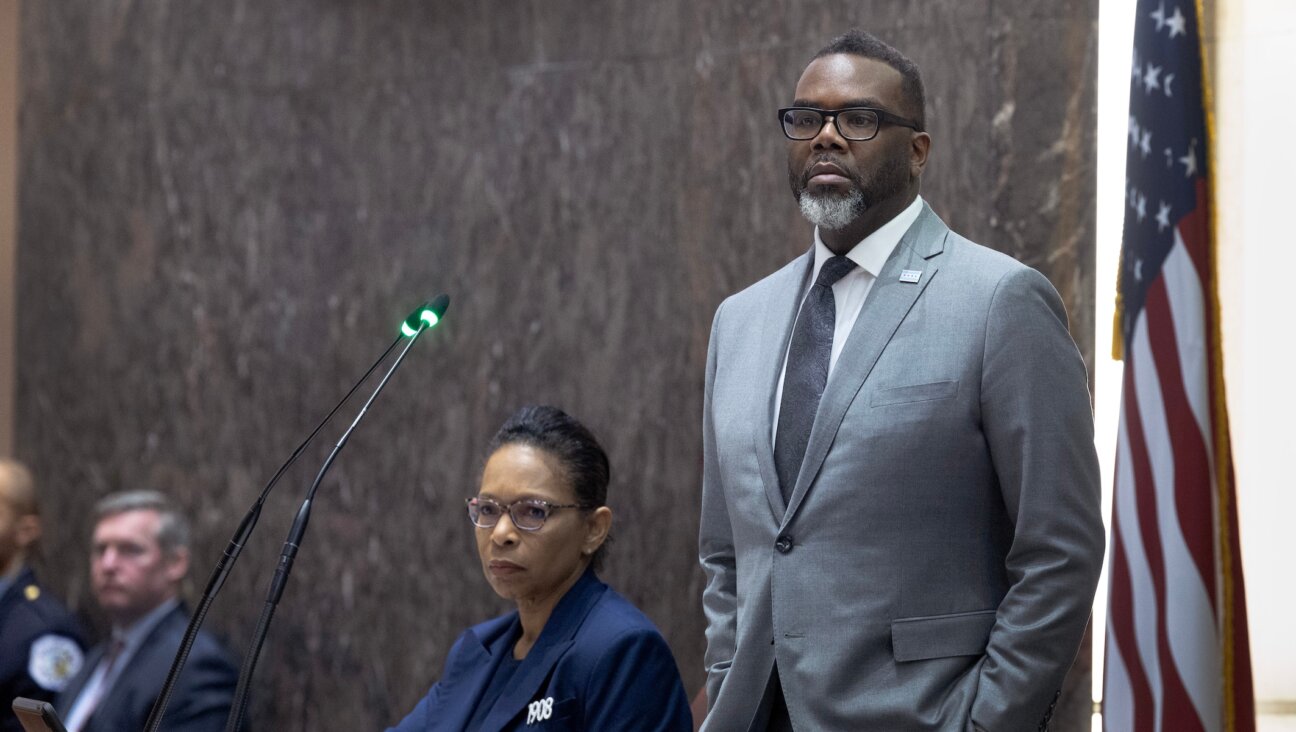
Fast Forward Chicago mayor donned keffiyeh for Arab Heritage Month event, sparking outcry from Jewish groups
-

Fast Forward The invitation said, ‘No Jews.’ The response from campus officials, at least, was real.
-

Fast Forward Latvia again closes case against ‘Butcher of Riga,’ tied to mass murder of Jews
-
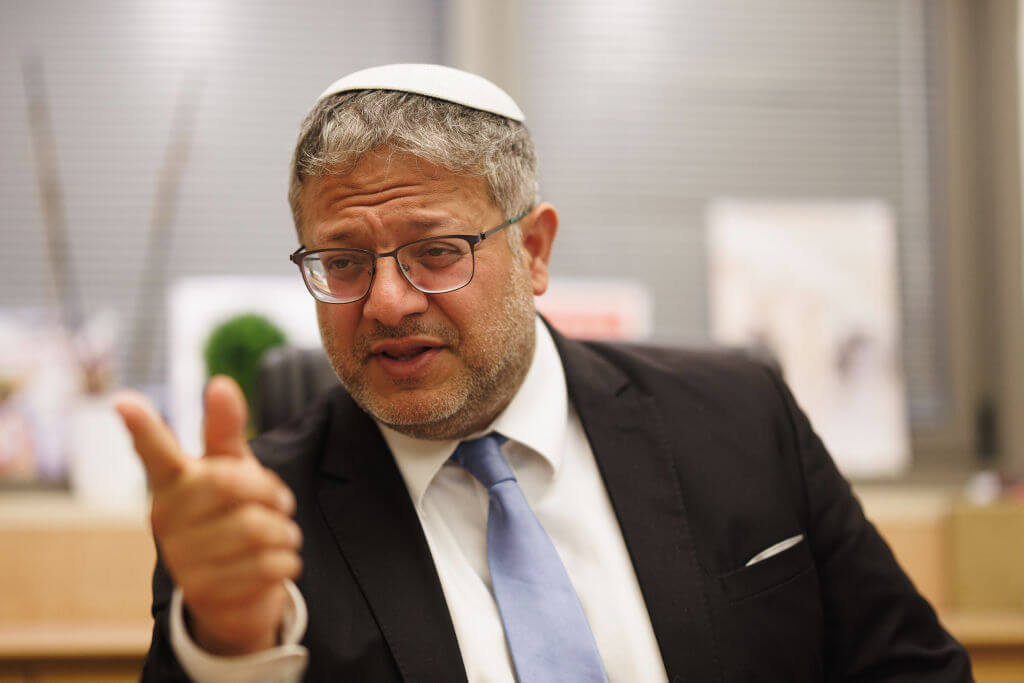
Fast Forward Protesters clash in Crown Heights as Ben-Gvir visits Chabad headquarters
-
Shop the Forward Store
100% of profits support our journalism
Republish This Story
Please read before republishing
We’re happy to make this story available to republish for free, unless it originated with JTA, Haaretz or another publication (as indicated on the article) and as long as you follow our guidelines.
You must comply with the following:
- Credit the Forward
- Retain our pixel
- Preserve our canonical link in Google search
- Add a noindex tag in Google search
See our full guidelines for more information, and this guide for detail about canonical URLs.
To republish, copy the HTML by clicking on the yellow button to the right; it includes our tracking pixel, all paragraph styles and hyperlinks, the author byline and credit to the Forward. It does not include images; to avoid copyright violations, you must add them manually, following our guidelines. Please email us at [email protected], subject line “republish,” with any questions or to let us know what stories you’re picking up.







